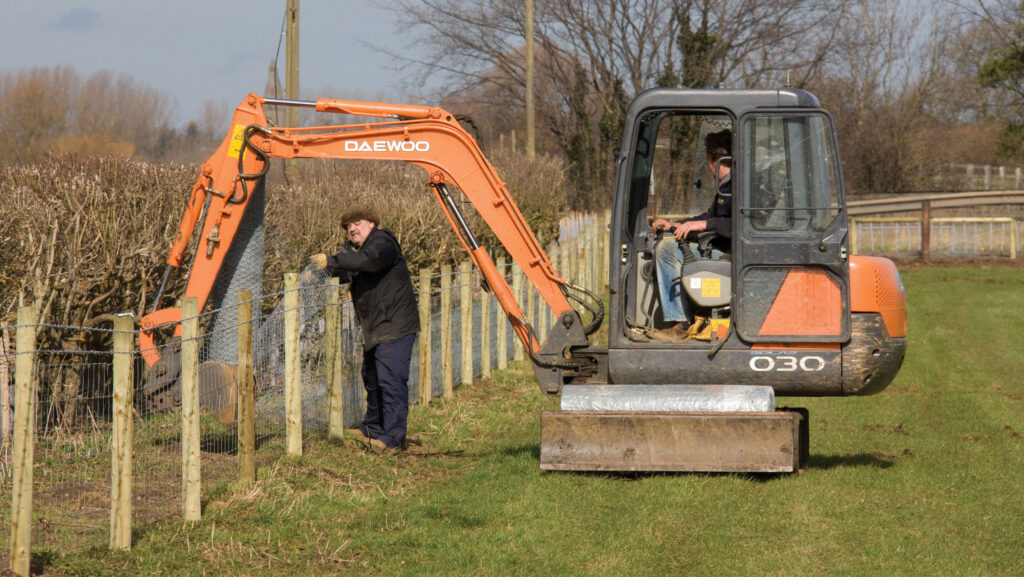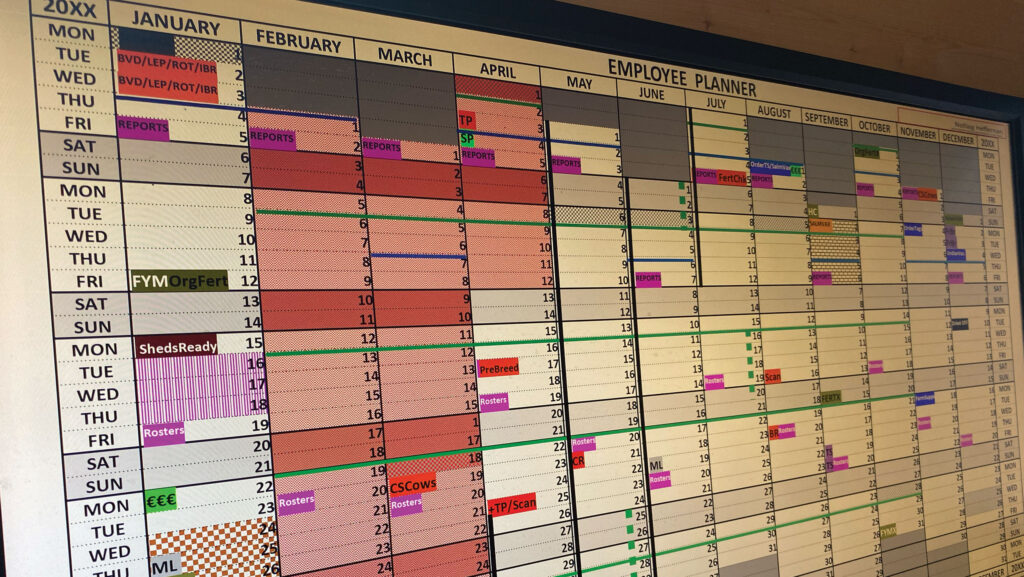How to prioritise everyday livestock tasks and be more productive
 © Tim Scrivener
© Tim Scrivener Livestock farmers who value their time and want to get more out of their business – and life – should aim to perform like an elite athlete.
Instead of a routine of peaks and troughs, the goal is for high averages (working at a high rate, but not flat out) and a relatively consistent workload across the year, says Irish management consultant Dr Nollaig Heffernan.
She teaches time management skills to farmers across the UK and Ireland and thinks many could spend less time on – and get more from – their farm.
Simply focusing on the everyday tasks leaves no room in the day to manage things that add value to the business: “Routine jobs are critical, but it’s equally important to prioritise the big, ‘proper’ things,” she says.
See also: Tips for better time management on the farm
She points out that, psychologically, farmers are task oriented and quick to tackle “reactive tasks”. They can fix a broken machine, or deal with cows that have got out, because they can quickly see a result.
Yet farmers can also become so engrossed in completing routine chores, they misjudge where to put their efforts.
This puts them under huge pressure when something important appears, or when a seasonal job (for instance, freeze branding) has been scheduled to clash with a busy time (calving or silaging).
Planning for progress
Adding value to the business is invariably office based, which is unfortunate for practical people who love the outdoors, and may not generate the direct feedback or immediate results desired by farmers.
Sometimes, decisions about finances or genetics can take years to bear fruit, says Nollaig. Nevertheless, time and space must be made to do them.
“It can’t be done intuitively, as that is based on experience.
“You have to make rational decisions based on thinking of the pros and cons, and a cost-benefit analysis, as this [adding value] is about progress, and you don’t [yet] have that knowledge.”
Focusing solely on the routine jobs is also low-return work: what Nollaig calls the £11.44/hour (minimum wage) jobs such as scraping out, feeding and checking stock.
“Higher-value jobs are more complex, and require thinking and planning, but return more and carry more risk, so getting them wrong is costly.
“These are the £500-plus/hour jobs – buying fertiliser, meeting compliance, or buying land – and to do these well, business owners need time and to get others doing the essential tasks.”
Compromising these jobs or investing on the basis of a snap decision could cause problems for years.
The key, she says, is to learn how to rank everyday tasks and make room for added-value work that will, in the long run, save the business time and money.
Prioritising also releases time for family and hobbies and allows people who like to be hands-on more opportunities to indulge in their favourite livestock tasks.
“If you love, [say], milking or driving a tractor, set up your system to allow you to do it, while also doing the higher value office work.
“[Or] set up your system to allow you to do the school run – be flexible, you can [always] change it again. Get good at the office job, then doing what you like doing is your reward,” she says.
Developing good habits
To establish good habits for going into the office, it helps to remove temptations and distractions.
Nollaig knows farmers who put their wellies elsewhere, or dress in their good clothes, to discourage them from going onto the yard.
Another way she suggests making office work more palatable is not to try to do all the paperwork in one go.
“You will be miserable [if you do]. It is better for your brain to put a time limit on your phone for 20 minutes and walk away [from the paperwork] – even if you are actually feeling good at that time.
“Anyone can cope with 20 minutes, no matter how ugly the job.”

© MAG/Steve Behan
Nollaig points out, however, that farmers are already good at prioritising tasks, they just need to recognise this skill and apply it across their whole business.
It takes good planning to know when to sell beef cattle, block calve, take the tups out, or take lambs to market, she says.
“This should give them confidence as they are already doing it. Being on top of those skills and applying them more systematically daily, weekly, monthly will get extra value from the business.”
The starting point is to understand the farming year and learn to organise it, before trying the day-to-day planning. Using a method she calls “discounted planning”,
Nollaig suggests marking a 12-month wall planner to give a bird’s-eye view of the business across the year (see “Nollaig Heffernan’s guide to planning”).
Nollaig Heffernan’s guide to planning
What you will need:
- A 12-month wall planner
- Family input
- Stickers – colour coding is quicker and works best
- Diary of events
- Staff input
- Discount (block out) the time not available to farming – using the stickers to colour-code different jobs and events
- Personal health and welfare
- Holidays
- Hobbies
- Courses
- Christmas slow-down
- School activities
- Mark known events, jobs or periods in the farming year
- Calving
- Lambing
- Breeding
- Animal health events
- Sales
- Discussion group days
- Silage making
- Farming events
- Add staff to relieve known stressed periods in advance
- Maintenance
- Fencing
- Shed preparation
- New staff induction
- Staff training
- Ordering specific materials/vaccines
- Prioritise monthly, weekly, daily tasks
- Milking and seasonal work such as calving, breeding, feeding are prioritised. Everything else is a bonus
The brain is target focused and likes to track something, she explains. Blocking out non-farming events on the calendar visually represents the time left available for farming.
Focus and efficiency
The planner highlights how quickly time gets consumed and is clear for everyone to see. This increases focus and efficiency.
“It means farming time is limited, so you need to use it really well. Allocate tasks to specific time slots, set deadlines. Think about what needs to be done and what would you like to do that is interesting or a challenge.”
Any major tasks, such as a new shed or renewing fencing, should avoid known stress periods and seasonal work such as silaging.
With more experience, it is then possible to use other tools to organise daily work routines more efficiently, says Nollaig.
“It is satisfying to be organised and planned – it’s addictive. Humans love success and it gives a dopamine hit in your brain.”
